|
During my fifth year with D.C. United, the team brought in a nutrition specialist. The specialist gave his presentation and then looked toward a table in the middle of the locker room that held about 40 pill bottles of vitamins, supplements, mild pain relievers, gels, powders, and who knows what else. The nutritionist then walked over to the table, looked back to us, and said, “you know, if you just eat well you can throw all of these out. In fact, you’d be better off doing that.” He left the locker room five minutes later and never came back. For my first five years at DCU, I had been taking those vitamins and supplements at the recommendation of our strength and conditioning coaches and athletic trainers. Now a certified nutritionist deemed the whole thing a waste of time and had even said they could hinder our performance—I wondered what exactly to do. Who should I listen to? This memory has stayed with me because it matters a lot for an athlete what you do with your body. It matters how you train, eat, sleep, relax, and recover. You need to know what is helpful for your athletic development and what is unhelpful. I wanted to know if the pills and supplements helped me or hindered me. This all applies to athletic prudence in the natural realm. Prudence is the ability to judge rightly and act according to that knowledge. It is being able to think through things correctly and then make the right choice. Thus, athletic prudence is the ability to choose and act rightly in the realm of an athletic pursuit. We make decisions and then act based upon what we have concluded is actually helpful or unhelpful in relation to our goal. I would like to apply this same line of thinking to the virtue of prudence in the supernatural realm. We should be asking what is helpful or unhelpful in terms of our spiritual lives. Just like the nutritionist condemning our pill vault and making me wonder what was actually helpful for my soccer career, we should ask what in our lives helps or hinders us from going to God. In order for us to do this, of course, we must acknowledge that God is both our goal and a worthy (the most worthy!) goal at that. When I got to the height of my playing career I was devastatingly depressed for a very concentrated span of time (only several days). For months I pondered why I hit such a low point amidst more success than I had ever expected. Eventually, through the help of the Holy Spirit, I realized that God allowed me to feel the weight of my success without Him. It was an incredible grace—but also one that was difficult to really learn. Over time the truth that my soul was more important than my sport sunk in. I realized that much of what I had made my life about was, in the end, unhelpful for reaching the ultimate Goal who is God. I started applying my athletic thinking to my spiritual life. I started asking the right questions—is this helpful or unhelpful for my spiritual life? Should I be hanging out with this group of friends so much? Are my weekend habits really bringing joy to my life? Am I living as the person I want to be? Do I know who I want to be? These questions led—and continue to lead—me to Jesus, and I find myself needing to ask them again and again. Do the decisions I make help me become who I want to be? Or are my decisions hindering me from being that person? Athletic prudence helps athletes maximize their potential and use their God-given gifts to the best of their ability. This same principle can—and should—be applied to our spiritual lives. Are the decisions, actions, and principles that guide my life helpful? Are they leading me in a good direction? Prudence, says St. Thomas Aquinas, is the mother of the virtues. You cannot possess any virtue without the virtue of prudence because prudence is what enables us to recognize what is truly good (helpful) and then act according to that good. No athlete can become great apart from athletic prudence because athletic prudence enables the athlete to recognize and act upon what helps him or her become a good athlete. Far more important, however, is the realization that no person can become who they were created to be apart from supernatural prudence. It is not possible to follow Christ without first asking yourself what exactly it is you’re already following—what is it that shapes your decisions? It may be a desire for comfort, power, status, honor, wealth, success, popularity, or any number of things. But they all fall short. To be prudent you must know the end goal. You cannot attain the virtue of prudence in the whole of life without knowing that “it is Jesus in fact that you seek when you dream of happiness.”  Taylor Kemp is an instructor for the Denver Catholic Biblical School as part of the St. John Vianney Seminary Lay Division in the Archdiocese of Denver. He is a former professional soccer player, amassing over 100 appearances over six-years in Major League Soccer (MLS) for D.C. United, and playing for both the youth and full United States Men’s National Team. Taylor holds an MA in Theology from the Augustine Institute and BS in Business Management from the University of Maryland, College Park.
0 Comments
Imagine four graduate students passionate about ministry and ready for new experiences. We pulled up to a ranch house in New Hampshire in August 2012 and unloaded our packed cars. Our next two years were devoted to serving in local parishes while earning our degrees in theology through the Echo Graduate Service Program. Our first community prayer took place on the Feast of St. Bernard of Clairvaux, whose feast day we celebrate on Thursday. The translation for “Clairvaux” is “Valley of Light”; we didn’t know a great deal about Bernard, but the theme of light clicked. We were accumulating candles as welcome gifts from our parishes, so of course, it was a sign! We pieced together his biography and reflected on his dynamic writings. We asked St. Bernard to be the patron of our house and bless our time together. St. Bernard was a monk who lived in 11th century France and became a Doctor of the Church. From an early age, he was considered devout and well-educated. The third of seven children, Bernard took a particular interest in poetry and had a special devotion to Mary. He notably authored the Memorare prayer. He became a respected abbot of what are now the Cistercians in the Diocese of Langres. Bernard is credited with naming the monastery he began Claire Vallée, in an area originally named Vallée d'Absinthe, or Valley of Bitterness. He was known for his influence among clergy and political leaders. St. Bernard died in 1153 and was canonized in 1174. Now imagine a young family. My husband, one-year-old son, and I prepared to “hunker down” for quarantine in March 2020 in Indiana. Five months later, we are still amid a global pandemic that can feel overwhelming, oppressive, disheartening, and confusing all at once. The virus has also revealed some of the most beautiful elements of community and compassion. While I can’t compare the virus to the challenges Bernard faced as a young adult starting a monastery with a “band of monks,” I appreciate how he held fast to the deeper purpose of Benedictine life. He cultivated habits of work, leisure, and rest while counseling his fellow monks, clergy, and politicians. COVID-19 forced me to recognize how I create space to listen and be with God both inside and outside my home, much like Bernard’s contemplative life. Eight years ago, the patron of candlemakers introduced what it means to practice a type of “spirituality of home” where home is not only a place for living, but also one of brightness, hope, and intentionality. I can see hope daily in our little boy, doing the hokey pokey many times over, reading books, and playing chase. We intentionally set up a prayer table in our living room where we say morning and evening prayers as a family and filled walls with icons and pictures to remember who it is we say thank you to! These habits took time, but they have been a source of security in such a time of uncertainty. I’m grateful to St. Bernard for bringing light to all the “unknowns” in our little ranch house in New England and my first home in the Midwest. He is a guide who shows us how to cultivate habits that lead to a deeper relationship with God, our true home! Reflection Questions: How might we practice a “spirituality of home”? Where is the light in our individual “valleys of bitterness,” i.e. isolation, loss, anxiety, or despair? Inspiration for this article came from the book Theology of Home. If you enjoyed this post, we invite you to read Creating an Inner Monastery During the Coronavirus Pandemic.
The Easter season assaults the physical and spiritual senses, calling the body and soul to unite as we share in a mere glimpse of the eternal life that was offered to us when the gates of paradise were opened on that beautiful Easter morning. Typically around this time, the smell of the Easter flowers adorning the sanctuary remind us of new life. The scent and sight of the burning incense and candles rising to heaven with our humble cries of “Sanctus, Sanctus, Sanctus” remind us of our prayers going up to the altar of God. We reach our fingertips out to touch the droplets of water washing over us and are reminded of our baptismal promises. The reception of the Eucharist leaps past our lips and dances on our tongue as we are engulfed, body and soul, by the true presence of our risen Lord. “Alleluia!! He is RISEN!! Where, oh death, is your sting?!” The words resound from the core of our being and echo through our hearts, escaping our lips in cries of exaltation. A few short weeks ago, these words were uttered from the speakers of televisions, laptops, and phones as we ushered in the Easter season as a Catholic family and community during the coronavirus pandemic. The tangible nature of the Catholic faith and the deep-rooted sense of community that the Easter season brings made this a difficult celebration for many of us. This rich season is a beautiful fifty-day celebration spanning from Easter Sunday to Pentecost. What a challenge it is, though, to maintain our joy when our hearts feel heavy and our senses yearn to be submerged in the deep traditions and rituals of our faith. “I am a practicing Catholic”. We may have uttered these words at various stages throughout our life for various reasons. Perhaps this simple phrase is the key we inherently possess to bridge the gap we may be feeling and provide much needed balm to our weary spirits and aching senses. As many of the doors of our church buildings closed for the safety, protection, and health of our communities, the foundations of the domestic church have begun to shine forth. For many, our homes have become the sole place for worship, praise, and spiritual communion, and we find ourselves face to face with the deep reality of Saint Paul’s words in his letter to the Corinthians. “For we know that if our earthly dwelling,* a tent, should be destroyed, we have a building from God, a dwelling not made with hands, eternal in heaven…For in this tent we groan, longing to be further clothed with our heavenly habitation…So we are always courageous, although we know that while we are at home in the body we are away from the Lord, for we walk by faith, not by sight” (2 Cor. 5:1-8). And so the words, “I am a practicing Catholic” tumble around deep in our beings as we seek to uncover the answers that the groaning spirit within us already understands. We can “practice” our Catholicism in a new, perhaps, different way during this time. Do we know the power of our habits? Our habits form and inform both the nature of how we approach our days, as well as the manner in which we respond to catalysts in our daily life. What do you automatically do when you wake up in the morning? The action steps that you take both consciously and subconsciously are habits and routines that you have formed over time to serve you in preparing to approach the day that lies ahead. There are two main instigators that cause us to revise and/or disrupt our habits: the desire for change or a need to adapt due to changing circumstances around us. Perhaps at this time both of these instigators are merging to grant us with a divine opportunity to draw ourselves closer to God. Within the very practice of our Catholic faith lie “habits” called virtues that can be practiced, developed, and deepened to help us grow closer to God and to fortify our relationship with Jesus Christ through the divine assistance of the Holy Spirit. The Catholic virtues are a beautiful way to continue to explore, celebrate, and proclaim the spiritually tangible aspects of our faith. By embracing these changing circumstances around us through a contrite desire to grow in virtue, concrete decisions and actions can be taken to deepen our virtuous life. In doing so, we strive to unite our physical actions and spiritual practices to grow in virtue while cultivating our domestic churches. If, therefore, we can embrace this time in our history to strengthen our virtuous resolve to truly anoint our lives and those around us with a real presence of the Living God, perhaps we may find that, although the doors of our earthly buildings have been temporarily closed, we can embrace the opportunity to unite our voices with the cries of the saints of heaven: “Alleluia! He is Risen!” “Our hearts are burning within us!” “My Lord and My God!” When I made the shift to working from home almost a month ago, I was excited for a change of pace: sleeping in, a 30-second commute from my bed, working in pajamas all day, not packing a lunch. But when it came down to it, I became restless and had trouble settling down. Focusing on work was difficult. Being productive did not come easy, with my mind wandering for much of the workday. I had embraced the idea of a change of pace, but not the realities of what that change really meant.
Prayer, when I remembered to make time for it, was similarly difficult to settle into. It took me some time to realize what was happening, in part because I work in a secular field. Since I don’t spend my workdays in the Church sphere, I don’t have many explicit or subtle reminders that point my day toward God. Meetings don’t begin with a prayer. My daily tasks and conversations with colleagues don’t revolve around Church activities and ministry. I don’t interact with my pastor or bishop over the course of my day. And though I’ve made an effort over the years to weave prayer and reminders of God into my daily life, my routine has been disrupted. So, naturally, my prayer life has gone out the window. Another piece to mention is that I live alone. Normally, I have a number of social engagements in the evenings and on weekends, often with Catholic friends. Our interactions have a shared Catholic identity baked in and serve as additional reminders of faith. Now that I’ve been largely alone for a month, my days seem to blur together. It's become easy to turn in on my own thoughts and seek out distractions to numb the collective grief we’re all feeling: the loss of normalcy and a sense of security, cancelled plans, and the uncertainty of when we’ll return to some semblance of normal. And in the midst of that, I forgot to pray. It dawned on me that I’ve been given an opportunity and a challenge: I’ve been thrust into an unchosen solitary monastic existence. I have the once-in-a-lifetime chance to completely re-invent what “normal” looks like for me in almost every way. While I owe the company 8 hours of my day, 5 days a week, everything else is mine to do with as I wish. I have a blank canvas. I don’t have to dress for work, shave, or drive to and from the office. I don’t have a spouse or children to care for, no roommate, and no one to interact with here in my home... except God. If I choose to, I can rebuild “normal” with a different foundation and framework, one centered on God. But I don’t have to be a full-time hermit in order to do this well. It’s a lesson that came to me in the midst of prayer and reflection during the Paschal Triduum. Something in me tends to go too hard during Holy Week, especially on Good Friday, and I feel a need to do as much as I can to enter into the sacrifice of Calvary in solitude. Once the quiet of Holy Saturday came around, though, I realized that in the inner urgency to “do” Holy Week so well on my own, I’d forgotten to “be” in the presence of God. Here I was, waiting for Easter with nothing left to do and no one to do it with. All the prayers and meditations had been said, all the fasting was ended, and all I could do was sit and wait. It was a striking reminder that, oftentimes, we need to just be and make room for God to do some work in our lives. Archbishop Wilton Gregory, in his homily on Easter Sunday, noted how important the concept of time is to the story of our salvation, and that Easter “resets the clocks and calendars of our lives.” It's especially true in these days of being forced to reduce the externals. We have an opportunity and a choice here: to either enter into the quiet and craft something meaningful in our lives, or to just make more noise to drown out the vastness of that quiet. We’ve been making a lot of noise lately, often without realizing it. Thank God for the recent reminders of the power of the phrase, “Be still and know that I am God.” May we all take advantage of this opportunity to hit “reset” and allow God to direct us in those quiet moments. When we re-enter the world in a “new normal”, may we use the lessons from this time of isolation to shape what that normal really ought to look like. Jay Schaefer is a Professional Engineer in Baltimore, working to maintain and improve the region's transportation infrastructure. He sings in his parish choir and is involved with the Knights of Columbus. Jay is also a former staff member and current collaborator of the Catholic Apostolate Center. 1 Corinthians 13: 4-8 “Love is patient, love is kind. It is not jealous, [love] is not pompous, it is not inflated, it is not rude, it does not seek its own interests, it is not quick-tempered, it does not brood over injury, it does not rejoice over wrongdoing but rejoices with the truth. It bears all things, believes all things, hopes all things, endures all things. Love never fails.” Like many of you, I have been quarantined in my house for the past ten days. I have set up my makeshift home office that moves throughout the day. My wife, on the other hand, is an ICU nurse: three to four days a week, she has been working in the very stressful environment that many of our medical professionals are experiencing. Over our four years of marriage, we have realized setting aside intentional time each day for one another is vital for our marriage. As we endure this pandemic, that intentional time has become even more necessary as we deal with the uncertainty, tension, worry, and fear building up over the day. One of the resources that my wife and I use to structure our time with each other is 1 Corinthians 13: 4-8. Throughout our twelve-year relationship, 1st Corinthians has been something we have continually turned to in both times of joy and struggle. Whenever this passage is read at Mass or during a wedding, I always feel a significant poke in the arm when “love is not rude” is proclaimed. Besides that subtle reminder from my loving wife, this passage always directs us back to our common call to love and support one another, especially during challenging times like today. Every family has had to endure this pandemic differently. However, we all share a call to set aside time to support our spouse, reminding them that our love—when it is centered on Christ and directed towards each other—can endure all things. Due to the stresses of family life, intentional time for prayer and each other are usually the first activities to go. While we dated across states, we made sure that our relationship included intentional time, eventually becoming a virtue of our relationship. When we married and began living under one roof, we assumed this time would happen automatically, but reality was the opposite. My wife’s schedule as a night nurse and mine as a pastoral associate meant our schedules were never in sync. We noticed our interactions becoming superficial, which caused us to easily become frustrated with each other and unaware of what the other was experiencing throughout their day. It took us almost six months to realize that even though we were living under the same roof, we had to be more intentional about our one-on-one time with one another. Pope Francis emphasizes couples setting aside this intentional time in his Apostolic Exhortation, The Joy of Love, “Time is needed to talk things over, to embrace leisurely, to share plans, to listen to one another and gaze in each other’s eyes, to appreciate one another and to build a stronger relationship...” (24). For my wife and me, this passage reminds us of how important setting distractions like our phone or TV aside for even 5 minutes, looking each other in the eye, and being able to share the highs and lows of our days is for our marriage. Pope Francis provides every couple the reminder that the love that is shared between spouses is ever-growing and takes the work of both partners to refine it. This meaningful time is more important during these weeks of quarantine, with the disease’s impact on the nation and our own family and friends, leading us to despair about the future. Too easily, we can let fear get the best of us, causing tempers to flare or directing emotions at our spouse or families. Like my wife and I when we first married, this intentional time will not automatically happen now that we are forced to be under the same roof. I would like to share some resources that my wife and I have personally found helpful throughout our relationship to support each other emotionally and spiritually. Hopefully, they will provide some structure to this time with your families, provide solace during these weeks, and become habits you will carry on after this pandemic passes.
[1] Francis, Amoris Laetitia,133. [2] Gottman, “The Natural Principles of Love,” 15.
“God withholds Himself from no one who perseveres.” –St. Teresa of Avila, Doctor of Prayer Perseverance always sounds nice; you hear the word and think “yes--I can do this!” Lately, I’ve been struggling to persevere in prayer. To combat this, I’ve found my American industriousness kicking in—resulting in my desire to impose on myself a strict prayer routine akin to that of St. Teresa’s (“If I just work hard enough, I’ll be levitating like St. Teresa in no time!”) only to wonder why it all seems to fall apart after 2 days. Discouragement soon follows, and I feel like I’m back at the beginning. I have fallen into this trap several times since I started taking my spiritual life seriously a few years ago. At the beginning, persevering in prayer and good spiritual habits can seem daunting. But the need for perseverance is a normal part of our spiritual journey. Sometimes prayer comes easily, sometimes we struggle to quiet our minds. As St. Josemaria Escriva said, “As the flames of your first enthusiasm die down, it becomes difficult to advance in the dark. —But that progress is all the more reliable for being hard. And then, when you least expect it, the darkness vanishes, and the enthusiasm and light return. Persevere! (Furrow No. 789)” It wasn’t until I heard the same advice from my spiritual director for the 100th time, combined with many Catholic podcasts and YouTube Videos, advice from friends, and books, that it finally dawned on me: you can and should tailor your spiritual life to fit your state in life and your personality! In doing so, you will find the strength to persevere. I made the mistake of thinking that the only way to grow in holiness was to follow the exact path of my favorite saints, only to end up frustrated as to why it wasn’t working or giving me any peace. After this struggle, I’ve learned four simple tips that have helped me develop better habits and persevere (and grow!) through a better spiritual routine.
As St. Francis de Sales also said, “Do not wish to be anything but what you are, and try to be that perfectly.” Get to know yourself, what spirituality works for you, and persevere! For more resources to deepen your spiritual life, click here. “Then Jesus said to His disciples, ‘If anyone wishes to come after Me, he must deny himself, and take up his cross and follow Me. For whoever wishes to save his life will lose it; but whoever loses his life for My sake will find it’” (Matthew 16:25). For about three months, culminating on Easter Sunday, I took part in a spiritual program for Catholic men focused on prayer, ascetism, and fraternity. During this program, men ‘unplug’ from the world, deny themselves, and live in a specifically intentional way for the Kingdom of God. This journey requires men to participate in fraternity with other men, read Scripture and reflections each day, spend at least 30 minutes in prayer with the Blessed Sacrament, and then other things, including: no social media, no computer or phone if not for work or other mandatory tasks like paying bills, taking a cold shower every morning, no sweets, no snacking between meals, no alcohol, getting at least 7 hours of sleep each night, no watching sports, and fasting and abstaining from meat every Wednesday and Friday. This is a journey through the Book of Exodus alongside Moses and the Israelites as they escape slavery in Egypt and learn how to live in true freedom in the Promised Land. The Book of Exodus is a brilliant metaphor for the modern man, called to a freedom rooted in the ability to choose the good for the sake of God and His Kingdom as opposed to a having a ‘false freedom’ and being a slave to desires and passions. Receiving screen time reports on my iPhone each week made me realize how much of a slave I am to my cell phone – to social media, to sports, to instant gratification. I desired to free myself from my phone in a radical way, which this program helped me achieve. This is just one example of how this journey invited me to restructure my day and rid myself of lazy habits. This journey was hard: the first few weeks were hard; the last few weeks were hard. I wasn’t perfect at maintaining all of the disciplines of the program. I can recall starting the cold water for the shower in the morning and letting it run for 5 minutes trying to pump myself up to jump in. This happened many times. But after 3 or 4 weeks, I was jumping right in. The old adage is true: First we make our habits, then our habits make us. The more we exercise true freedom – denying ourselves and making choices that counter our desire for comfort – the easier it is to live in freedom. Feeling much more liberated, I still do not have any social media apps on my phone, I take a cold shower from time to time, and prayer time is a staple of my daily routine. Making these types of continued choices is not easy, and that is why participating in community with the Body of Christ – much like the disciples did— is essential to continued spiritual growth. Though each choice and discipline of this program is deeply personal, a community of like-minded men working through the same disciplines in their own right was a crucial element of this process. This community allowed me to give and receive motivation and encouragement and ensured that the disciplines were being completed in a physically and spiritually healthy way. This is why the Church, in her wisdom, has encouraged the formal development of many religious communities – such as the Dominicans, Franciscans, and Pallottines. I believe this is also why the Church today is stressing Collaboration and Co-Responsibility in ministry. The journey to heaven is not one that should be walked alone. I would encourage you, in whatever spiritual journey you undertake for God and his Kingdom, to do so in community. Question for Reflection: Have you ever participated in a spiritual program, conference, or retreat that had a positive impact on your faith? The last full week of Lent, before Holy Week begins, has always been a bit of a struggle for me. Usually by this time, I’ve already slipped up on my voluntary Lenten penances once or several times, I’m ready for the Triduum to just be here already, and I’m completely over the color purple. My husband and I jokingly call this spiritual sluggishness or restlessness “the end-of-Lent slog.” It seems like these particular days before Holy Week ramps up are when we are tempted the most to go back to the things we’re fasting from or to just throw in the towel on Lent because we’re “basically done.” My husband and I pray Evening Prayer from the Liturgy of the Hours together, and one of the readings that has resonated with me this Lent comes from St. Paul. In his first letter to the Corinthians, he encourages his readers to imitate well-trained athletes and to “run so as to win.” He continues: “Every athlete exercises discipline in every way. They do it to win a perishable crown, but we an imperishable one.” When I was a teenager, I viewed Lent as a sprint: choose some really intense or difficult penances, struggle to maintain an unrealistically high level of spiritual rigor, and then after Easter gleefully go right back to doing and eating all the things I had given up while tossing out all the spiritual growth I’d supposedly just undergone. As I matured in my faith, I came to understand that Lent is not meant to be a temporary, intense lifestyle challenge; rather, it is the start of a marathon. It’s a specific time to motivate ourselves to grow deeper in our relationship with God by letting go of the things that keep us from Him and by doing more difficult penances for our sins and vices—preferably by abstaining from them and thus breaking our addictions to or reliance on them. Like St. Paul says, we ought to treat our spiritual lives the way that athletes treat their sport: they dedicate themselves to it, setting higher and higher goals, training their bodies, denying themselves in order to maintain peak physical performance. And all of this to win a crown of leaves! How much more important, then, are the things we take on during Lent? We are training and preparing our souls for an eternity in Heaven with God, not for gold medals or accolades here on earth. Do we approach Lent as something that we need to win right now, this year? Or as something that trains us and jumpstarts us for the rest of the year—and the rest of our lives? Do we find ourselves fasting from the same things every year because we couldn’t maintain virtuous habits once the Easter bells started to ring? Or have our old Lenten penances and prayers become so incorporated into our daily lives that we can build upon them with each new Lenten season? Once I realized these things about Lent, all those times I “failed” in my Lenten practices didn’t seem so terrible anymore. I no longer want to “quit” Lent when I accidentally slip up on my penances or when I find myself giving in to temptation. If Lent is meant to jumpstart us on spiritual practices that we continue for months and years afterward, then we have to acknowledge and move past the stumbles and crashes when they come. Our failures to live up to our promises to God are still regrettable, certainly, but when we are in it for the long haul, our stumbles are also much more forgettable. St. Paul shows us that in “forgetting what lies behind but straining forward to what lies ahead” we must continue in our “pursuit toward the goal, the prize of God’s upward calling, in Christ Jesus.” We must acknowledge and repent of our broken pasts and our sinfulness, but we also must look with hope toward the future that Christ has made possible for us. If we allow ourselves to dwell too much on our failures, our concupiscence, our weakness as mortal men, then we can lose sight of the ultimate goal for which we strive: to be with Christ in Heaven. As Lent moves into Holy Week and Eastertide, let us strive to be like Paul’s well-disciplined athletes, winning the marathon of life by training our souls for the eternal prize of Jesus Christ. For more resources to accompany you throughout the Lenten season, please click here. Question for Reflection: How can you build on your Lenten practices throughout the liturgical year? “Remember you are dust and to dust you shall return.” We are now over a week into our Lenten journey; the reality has set in. We are questioning our decisions to give up sweets or the snooze button, and we are tired. Perhaps we have even failed a few times. The forty days seem to drag, and the somberness of the liturgical season has made itself known. Yet during the Ash Wednesday service at my parish, our priest was talking about the joy of the season and how our failures are meant to bring us closer to Our Lord. In a word, he talked about the hope of Lent. As someone who would rather stay in the joy and light of the Christmas season, I was really challenged by Father’s perspective, especially now, after my many failed attempts to give up the snooze button. We often focus so much on the “giving up” aspect of Lent that the words joy and hope do not seem to go hand in hand with this season. This is especially true when I think of the phrase that kickstarts our Lenten journey: “Remember you are dust and to dust you shall return.” On a superficial level, this sign on our forehead doesn’t look so good. Where are the hope and joy in having ashes smeared on your forehead? Throughout his homily, Father also encouraged us to change our perspective on the difficult acts of penance we are attempting and instead to live in the reality that this season could be a time of true conversion of heart. Our Lord desires us to be holy! The acts of penance we choose could be the very means He uses to break us of habitual sin and to bring a deeper level of charity into our hearts. Conversion of heart and holiness? I could get behind that; I can see the joy there! The priest did not say “if you fail your resolutions” but “when you fail.” This is a reminder of our weakness and utter dependence on Jesus, who will be making His way to Calvary soon, in Scripture, to save our souls. This dependence on Him will assist in our conversion of heart, considering “we can do nothing without him” (John 15:5). So: it’s alright to fail, but run back to Him. Beg Him for more grace! Now let’s read this sentence from the Ash Wednesday service one more time: “Remember you are dust and to dust you shall return.” Where is the hope there? Father explained that this is the most hopeful reality yet. Ultimately this reminder of our sinfulness and our death paradoxically represents the life we have in Christ, the Resurrection of Jesus, and the hope we have of entering into the Eternal Reward. Even though the phrase seems bleak, it can propel our hope throughout these 40 days. We have something to strive for, to live for, and to love for. Though I have failed at my Lenten resolutions more times than I have not, I pray with the hope that my humanity might be resurrected, that Our Lord may convert my sinful ways, and that I may remember that this liturgical season is less about what I do and more about what the Lord is doing in my heart to get me home. What are ways you need to be renewed in hope and joy? How can you accept the failures that come with penance and run to Jesus this Lenten season? “Remember you are dust and to dust you shall return.” For more resources to accompany you on your Lenten journey, please click here. January, as the first month of the new calendar year, is for many people a time to start fresh. And January 2019 in particular seemed to be the month of intense home decluttering. This is probably due to the advent of the Netflix show “Tidying Up with Marie Kondo.” I have friends and relatives who had never heard of Kondo’s bestselling book before the streaming show debuted, and yet I have watched them become KonMari method adherents, filling my social media feeds with success stories about the household clutter they are donating or dumping. Amid all this physical decluttering, I find myself wondering how often we take time to do some spiritual decluttering as well. Especially for myself—I strive to maintain a ruthless-but-not-obsessive attitude about household clutter. But do I regularly declutter my soul outside of going to confession every month or two? And when I do attempt spiritual decluttering, do I approach it with the same kind of enthusiasm about ridding my soul of the things that are holding me back from God? In this new year’s spirit of decluttering and simplifying, we tend to think about the kinds of things in our homes that we no longer need: toys missing essential pieces, gifts we will never use but feel too guilty to donate, soccer participation trophies from third grade. But we should also think about the kinds of things that make up ‘spiritual clutter’: useless smartphone games that waste hours of our time, social media accounts that just fuel jealousy and resentment toward our peers, junk food binges that disrespect our bodies as temples of the Holy Spirit. What are the things that our minds, our bodies, or our souls cling to that do not bring us closer to God? In Luke’s Gospel, Simon, James, and John “leave everything” to follow Christ. We also are called to leave everything and follow Christ. But what does everything mean when we live in the twenty-first century with all of its modern conveniences? We are not all called to join a mendicant order, to become cloistered nuns, or to become missionaries in the far-flung corners of the world. We still need shelter, food, clothing, and dignified work. But along with striving to make our homes oases of calm in a chaotic life, so too should we strive to make our souls oases of peace in a fallen world. If we really stop to think about it, spiritual clutter is as ubiquitous as and more detrimental than physical clutter. Everywhere we turn, there are bad habits and ill-formed attachments that keep us from deepening our relationship with God. And just like physical clutter, spiritual clutter is a deeply personal thing. We can choose to ignore it, but—like its physical counterpart—spiritual clutter will eventually take over our lives until we dread even peeking into those areas that are the messiest and need the most work. But we must look inward in order to grapple with the things that keep us from following Christ—especially if we dread what we will discover about ourselves. When the metaphorical pile of spiritual clutter seems insurmountable, it is good for us to remember that we are not alone in our endeavors: God is there beside us, calling us to engage with him in the sacrament of Penance, which itself is spiritual decluttering. With its thorough examination of conscience and its outpouring of God’s grace, going to confession not only absolves us of the sins that clutter our hearts, but it also bolsters us to overcome those temptations in the future. And, with God’s grace, the spiritual clutter that accumulates in our hearts will slowly begin to seem more manageable and less insurmountable, until one day we realize that the things that had once seemed to control our lives are no longer more than a passing temptation. As the new year continues on and we declutter more of our physical homes, let us remember to give equal attention to our spiritual homes. Question for Reflection: What are some things that are cluttering your spiritual life? Many hope to journey through Lent having experienced a true transformation in their spiritual life. But sometimes, innocently enough, we don’t take full advantage of our time when we give up something that we have every intention of picking right back up (or indulging in on Sundays). Don’t get me wrong—it can be spiritually edifying and purifying in a lasting way to give up normally enjoyable things (e.g., chocolate, Netflix, alcohol) for just a period. A few years ago though, inspired by centuries-old Catholic theology I learned from some introductory college classes, I tried a different approach to Lent. I found the saints were all talking about Lent as a time to grow in virtue. In the Catholic tradition, a virtue is “an habitual and firm disposition to do the good” (CCC 1803). You might think of virtues as character traits that describe a holy and happy life. Here are some of the “human virtues” that play a prominent role in the Catholic life: The Cardinal Virtues: Prudence, Temperance, Justice, and Fortitude. The Cardinal virtues have a special role in the Catholic tradition, and make possible other important virtues like… The Capital Virtues: Humility, Generosity, Chastity, Meekness, Temperance, Kindness, and Diligence. The seven Capital virtues are meant to counteract the Seven Capital Vices, or ‘Deadly Sins.’ One of the best teachers about virtue is the famous Dominican St. Thomas Aquinas, who lived from 1225-1274. Growing in virtue helps us grow more like Christ, so we can, in St. Thomas’ words “recover the completeness and distinction of mind” that gets lost through sin and vice (Meditations for Lent, 22). Lent is also a great time to focus on developing a virtue that has become weak in your life. St. Thomas Aquinas teaches that we grow in virtue by forming good habits and receiving grace. Habits are important because they tend to shape our overall character and moral decision-making process, and therefore have a role in our relationship with God, others, and our self. Lent is an excellent opportunity to form new habits that we can then carry forward into Easter and beyond. In order to grow in virtue, we need to develop good habits, and we develop habits through repeated actions (See also CCC 1810). Repeated good action --> Good habits --> Virtue It’s a little simplistic here, of course. And although it’s a simple concept, admittedly, it’s not always easy in practice. Building good habits can be difficult because we often find ourselves already stuck in bad habits (vices) that may be tough to break. That’s why giving something up isn’t always enough; we need to replace it with a good action. It also takes focus and developing discipline, which is exactly what we see in the desert experiences found in Scripture as well as the Early Church (CCC 1434). Interestingly, contemporary psychology reinforces to some degree what theologians have understood about habits. Scientists report that it generally takes between 21 and 66 days to turn a new behavior into a habit. So over the forty days, why not consider choosing a Lenten practice that’s not just temporary, but one you hope will stick? Take some time in prayer before Lent begins to identity one specific virtue that will help you draw closer to God. Then, consider some actions can you take toward growing in this virtue. Think in terms of the traditional Lenten practices of prayer, fasting, and almsgiving. For example, fasting can help transform habits associated with our appetite for things, the virtue of temperance. An appetite doesn’t necessarily mean food or drink, though it may. It really covers anything we use to fill our mind and body, like TV and the Internet. Lent is a desert experience where we learn to pursue and subsist on the Word of God rather than our perceived needs. Or maybe you want to grow in the virtue of kindness. Commit to going out of your way to doing one kind action each day by giving of your time, talent, or treasure. Or you might pray for someone you don’t get along with. At its heart, Lent is not a course in self-improvement; it is a disciplined journey toward deeper communion with our crucified and risen Lord Jesus. Ultimately, the help we need to grow in virtue comes from God’s gratuitous gift of grace. We say yes to this journey as we respond by developing habits of holiness. For more resources to help you develop your Lenten habits, please click here. “I was dazzled by a girl I met… I was struck by her beauty, her spirit. I was bowled over for quite a while, she made my head spin.”
Yes, even Pope Francis has experienced falling in love. Much more than just hormones, neurochemicals, emotions, or a pyscho-physical state, love is an ongoing relationship between two people. It is stable, yet grows and is lasting; it offers affection, support, help, and hope (cf. 1 Corinthians 13). If a relationship is not rooted in this love, how can it last? Just as God’s love is total and without end, so must be the love upon which a family is based. In a world where too many settle for an empty version of love and the family unit is under attacksuffering difficulty, it becomes critical that we remember the sacredness of the sacrament of marriage and its purpose as instituted by God. God’s first command to Adam and Eve was to “be fruitful and multiply” (Genesis 1:28). He had not joined our first parents solely for their own benefit or pleasure. Their every act in God’s new creation was to glory and praise Him. Similarly, a man and a woman do not enter into a marriage for their own happiness, but to “love and honor” each other “in good times and in bad… all the days of [their] life.” The couple reflects God’s bearing fruit in their lives, a continuous sign of God’s Power in the world. Everything they do, be it chores, budgeting, cooking, or relaxing, whether separately or together, is a living out of their sacrament— even the smallest acts in the life of a married couple have power hidden within them to make them holy. As married life is the ground of holiness, love is the seed planted by God. Life, together with its agonies and joys, pain and sacrifices, frustrations and tensions, moments of exultation and despair, all act as the rain and sun, thunder and lightning on a young sprout. Of course, disagreements are a normal part of the married lifestyle as well as the human condition. No one is perfect but the faults and weaknesses of each one are compensated for by the other’s virtues. Each possesses what the other lacks. Rather than causing a rift between the two, this results in a loving dependence on each other for spiritual growth and transformation. By forming a habit of looking at each other in a sacramental way— seeing the beauty of God in each other’s souls and seeking to enhance that beauty by building up each other— a married couple reflects God’s blessings and love. The Catechism of the Catholic Church acknowledges this by making no distinction between the roles of the man and woman in the family (see CCC 2221-2231). Rather, both are called to provide the good example and instruction of both academic reason and moral and spiritual formation to their offspring, who in turn contribute to the growth in holiness of the parents (see CCC 2227). Being married to one another, the man and his wife are entrusted with the welfare of the family— woe to those who neglect this responsibility (see 1 Timothy 5:8)! The purpose of raising of a family is not to give glory to oneself but to selflessly assist each other in reaching the Kingdom of God. This is no easy task, as it is a great challenge to devote one’s life to those around him/her! To do this requires great love, the strongest bonding force, and we are reminded of this in a reading commonly used in weddings: Husbands, love your wives, just as Christ also loved the church and gave Himself up for her, so that He might sanctify her, having cleansed her by the washing of water with the word, that He might present to Himself the church in all her glory, having no spot or wrinkle or any such thing; but that she would be holy and blameless. So husbands ought also to love their own wives as their own bodies. He who loves his own wife loves himself; for no one ever hated his own flesh, but nourishes and cherishes it, just as Christ also does the church, because we are members of His body. “For this reason a man shall leave his father and mother and shall be joined to his wife, and the two shall become one flesh.” This mystery is great; but I am speaking with reference to Christ and the church. Nevertheless, each individual among you also is to love his own wife even as himself, and the wife must see to it that she respects her husband. (Ephesians 5:25-33) Finally, Matrimony responds to a specific vocation and must be remembered as sacred. It is a consecration: the man and woman are consecrated in their love. The spouses, then, are entrusted with a mission, so that by starting with the simple ordinary things of life they may make visible and known the love with which Christ loves His Church— that is continuing to give His life for her in fidelity and service. In spite of the difficulties experienced by married couples, the important thing to remember is the nurturing of their bond with God, Who is the foundation of and the cause of joy in the marital bond. Pope Francis, though he ultimately gave himself to the ultimate Spouse, offers these words of advice for preserving “what God has joined, [and] men must not divide”: There are three words that always need to be said, three words that need to be said at home: may I, thank you, and sorry. The three magic words. May I: so as not to be intrusive in the life of the spouses. May I, but how does it seem to you? May I, please allow me. Thank you: to thank one’s spouse; thank you for what you did for me, thank you for this. That beauty of giving thanks! And since we all make mistakes, that other word which is a bit hard to say but which needs to be said: sorry. Please, thank you, and sorry. With these three words, with the prayer of the husband for the wife and vice versa, by always making peace before the day comes to an end, marriage will go forward. The three magic words, prayer and always making peace. Thomas Wong is an undergraduate at The Catholic University of America in Washington, D.C. When I was four years old, my parents decided they wanted to put me in some type of pre-school before I entered kindergarten the next year. Being the oldest child, there was no precedent for where to go. My parents spent weeks looking at different preschools and settled on a small Lutheran school just up the street from our house. The appeal was its location and small class size. Knowing they would be enrolling me at the local Catholic school after preschool, my parents were not too concerned about sending me to a Lutheran preschool.
I started my first day in a class with 8 other children. There were seven little boys with a habit of biting, and then one other girl. Naturally, this girl and I became best friends. We really had no other choice. Even though we only went to school together for one year, we remain friends to this day and I look forward to attending her wedding next year. I am her token Catholic friend and she is my token Lutheran friend. We have grown together and share our faiths with each other. Later this week is the start of the Week of Prayer for Christian Unity (January 18-25) and it has made me think a lot about my “token Lutheran friend.” I remember a conversation we had when we were ten years old, after a friend of hers had asked her why we were still friends since I was Catholic. Sitting in her kitchen, we talked about how to us, it didn’t matter at all. We were defined by more than our individual faiths and united in a shared belief of Christ as the one through whom we can achieve salvation. Today, it surprises me how theologically intense some of our discussions got, even at young ages. The week of Prayer for Christian Unity is a reminder to all of us that the Christian faith, while made up of many different denominations, is still universal. There are differences that divide the different Christian faiths, but this coming week is a time to focus on the things that unite us. The idea of New Evangelization reminds us as Catholics to share our faith and spread the Gospel. I leave you with this scripture passage, selected as the biblical text for the 2014 Prayer for Christian Unity. St. Paul reminds us that we are all united in our faith in Christ, and I challenge you to use this week as a time to reflect on how we as a Catholic community can grow in faith with our Christian brothers and sisters. “Now I appeal to you, brothers and sisters, by the name of our Lord Jesus Christ, that all of you should be in agreement and that there should be no divisions among you, but that you should be united in the same mind and the same purpose. For it has been reported to me by Chloe’s people that there are quarrels among you, my brothers and sisters. What I mean is that each of you says, ‘I belong to Paul’, or ‘I belong to Apollos’, or ‘I belong to Cephas’, or ‘I belong to Christ.’ Has Christ been divided? Was Paul crucified for you? Or were you baptized in the name of Paul? I thank God that I baptized none of you except Crispus and Gaius, so that no one can say that you were baptized in my name. (I did baptize also the household of Stephanas; beyond that, I do not know whether I baptized anyone else.) For Christ did not send me to baptize but to proclaim the gospel, and not with eloquent wisdom, so that the cross of Christ might not be emptied of its power.” Check out the Catholic Apostolate Center’s resources on Christian unity here. Rebecca Ruesch is the Blog Editor for the Catholic Apostolate Center |
Details
Archives
July 2024
Categories
All
|
About |
Media |
© COPYRIGHT 2024 | ALL RIGHTS RESERVED

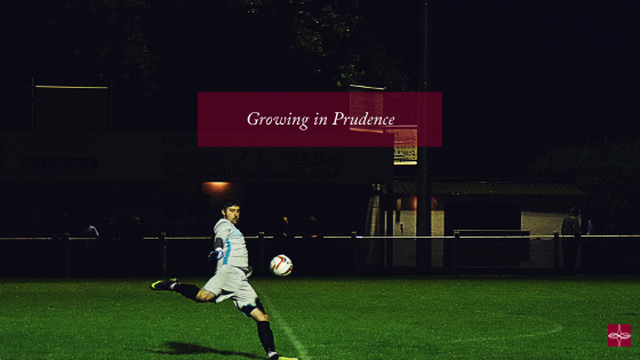


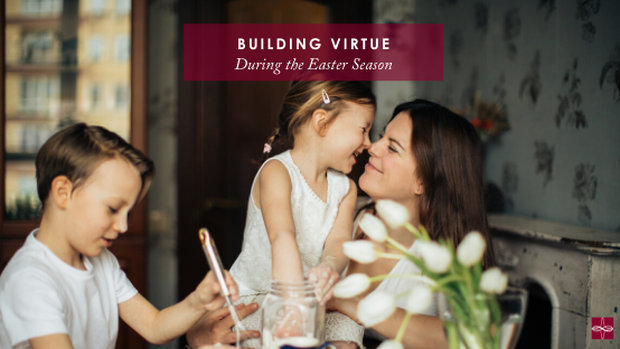




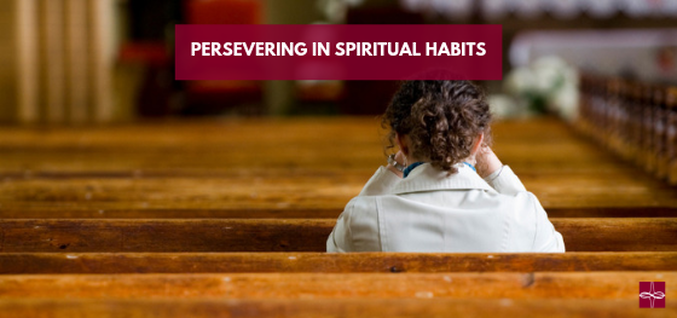

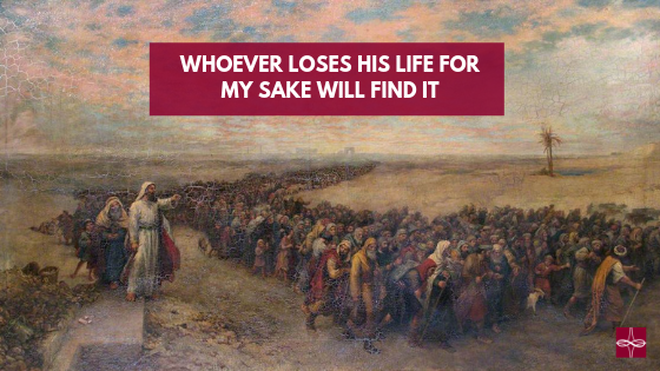



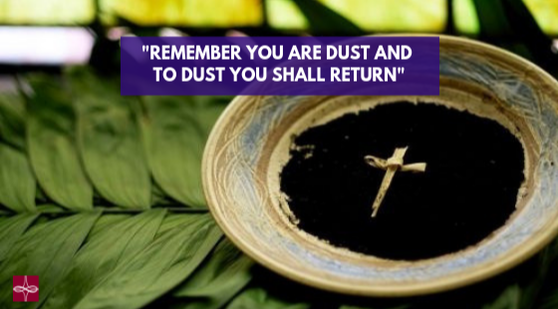







 RSS Feed
RSS Feed